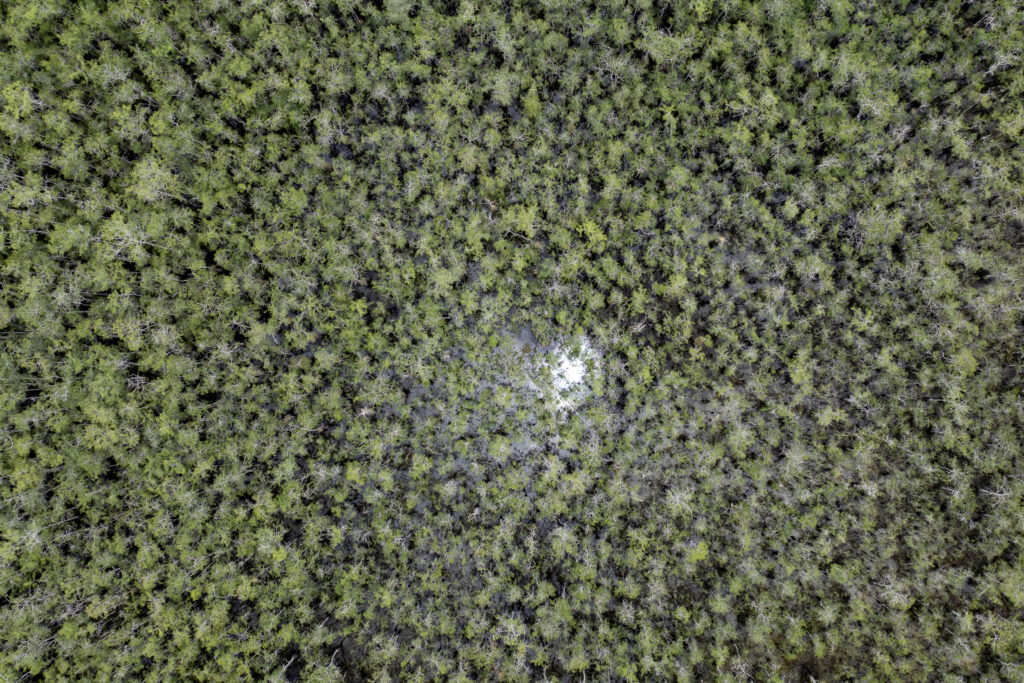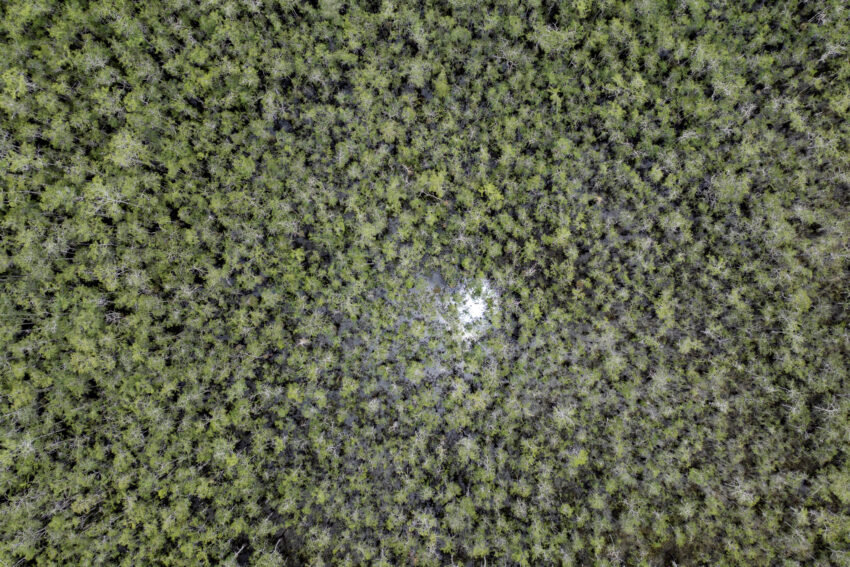
By Trevor Hunnicutt and Evelyn Hockstein
OCHOPEE, Florida (Reuters) -U.S. President Donald Trump arrived in Florida on Tuesday for the opening of a remote migrant detention center in the Everglades dubbed “Alligator Alcatraz” as he pressures lawmakers to deliver a sweeping spending bill which would ramp up deportations.
The facility sits some 37 miles (60 km) from Miami in a vast subtropical wetland teeming with alligators, crocodiles and pythons, fearsome symbolism the White House has leveraged to show its determination to purge migrants it says were wrongly allowed to stay in the country under former President Joe Biden’s administration.
“There is only one road leading in, and the only way out is a one-way flight; it is isolated and surrounded by dangerous wildlife and unforgiving terrain,” said White House spokeswoman Karoline Leavitt at a news briefing on Monday. “This is an efficient and low-cost way to help carry out the largest mass deportation campaign in American history.”
Trump himself issued a warning about the wildlife around the facility on Tuesday. “I would not want to run through the Everglades for long,” Trump told reporters as he arrived in Florida.
Lawmakers on Capitol Hill are debating the details of a bill that could significantly expand funding for deportations. Trump has lobbied fiercely for the bill, which he wants passed before the July 4 Independence Day holiday and includes several of his other tax-and-spending plans alongside tens of billions of dollars for immigration enforcement.
HARDLINE POLICIES
The Republican president, who maintains a home in Florida, has for a decade made hardline border policies central to his political agenda. One in eight 2024 U.S. election voters said immigration was the most important issue.
But Trump’s campaign pledges to deport as many as 1 million people per year have run up against protests by the affected communities, legal challenges, employer demands for cheap labor and a funding crunch for a government running chronic deficits.
Lawyers for some of the detained migrants have challenged the legality of the deportations and criticized the conditions in temporary detention facilities.
The numbers in federal immigration detention have risen sharply to 56,000 by June 15, from 39,000 when Trump took office, government data show, and his administration has pushed to find more space.
The White House has said the detentions are a necessary public safety measure, and some of the detained migrants have criminal records, though U.S. Immigration and Customs Enforcement detention statistics also show an eight-fold increase in arrests of people charged only with immigration violations.
Trump has spoken admiringly of vast, isolated prisons built by El Salvador and his administration has held some migrants at the Guantanamo Bay naval base, in Cuba, best known for housing foreign terrorism suspects following the September 11, 2001, attacks on the United States.
In promoting the opening of the facility, U.S. officials posted on social media images of alligators wearing Immigration and Customs Enforcement hats. The Florida Republican Party is selling gator-themed clothing and beer koozies.
Representative Debbie Wasserman Schultz, a Democrat who represents a nearby district in Congress, said in an emailed statement that “Trump and Republicans badly need this wasteful, dangerous, mass misery distraction” from a bill that would cause state residents to lose their health care benefits.
The complex in southern Florida at the Dade Collier Training and Transition Airport is estimated to cost $450 million annually and could house some 5,000 people, officials estimate.
Florida Governor Ron DeSantis has said he will send 100 National Guard troops there. A portion of the funding is expected to be provided by the Federal Emergency Management Agency, the U.S. government disaster recovery service.
Some local leaders, including from the nearby Miccosukee and Seminole tribes, have objected to the facility’s construction and noted the area’s sensitive environment. The construction has drawn crowds of demonstrators.
“Great facility,” said Trump’s border czar Tom Homan, in an interview on Monday. “We need more beds. That’s why we need the big, beautiful bill passed.”
(Reporting by Trevor Hunnicutt in Washington, Evelyn Hockstein and Maria Alejandra Cardona in Ochopee, Florida; Additional reporting by Steve Holland; Editing by Mary Milliken, Nick Zieminski and Alistair Bell)



